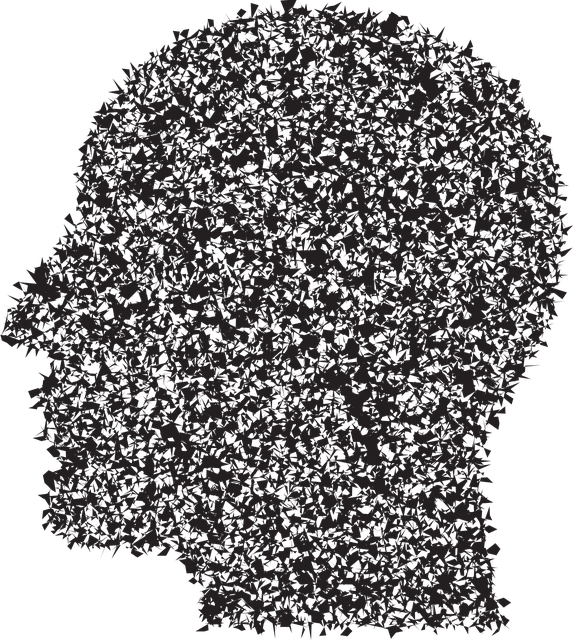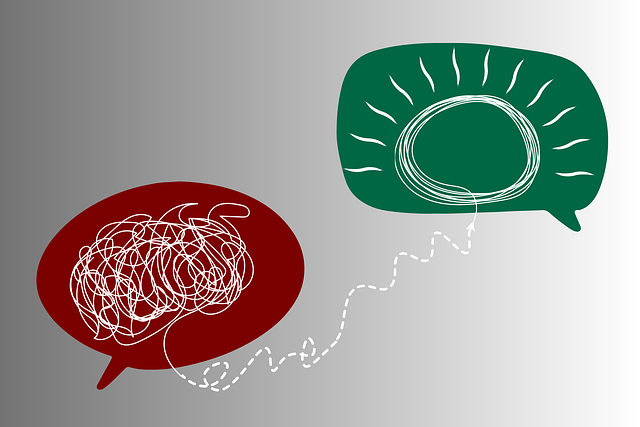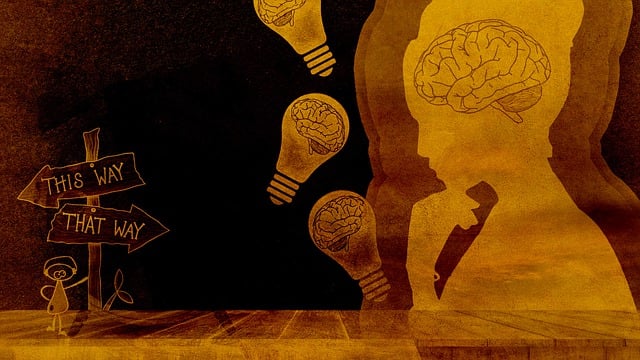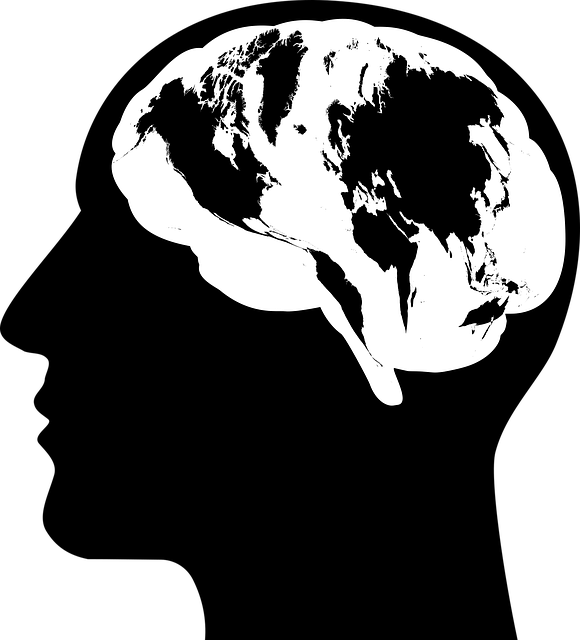Cultural diversity significantly impacts mental health, especially for young adults from diverse ethnic groups facing unique challenges like postpartum depression. Accessing tailored therapy approaches requiring cultural competency is vital. Stigma around PPD often hinders diagnosis and treatment in non-Western communities. Mental healthcare professionals must prioritize culturally sensitive practices, understanding clients' backgrounds to create safe spaces for expression and enhance therapeutic outcomes through tailored strategies. Integrating peer support, technology, and conflict resolution techniques ensures equal access to effective therapy for young adults and new mothers suffering from PPD.
In today’s diverse society, cultural sensitivity in mental healthcare is paramount. Understanding cultural diversity shapes effective treatment plans, especially for at-risk groups like young adults and those grappling with postpartum depression. This article explores these nuances, delving into the unique challenges and needs of diverse populations. We examine how cultural factors influence mental health expressions and explore strategies for professionals to navigate these complexities, ultimately enhancing care for all patients, particularly young adults and individuals experiencing postpartum depression.
- Understanding Cultural Diversity and Its Impact on Mental Health
- The Unique Needs of Young Adults in Therapy: A Cultural Perspective
- Postpartum Depression Across Cultures: Symptoms and Stigma
- Building Culturally Sensitive Practice for Effective Treatment
- Strategies for Mental Healthcare Professionals to Navigate Diverse Populations
Understanding Cultural Diversity and Its Impact on Mental Health

Cultural diversity is a vibrant aspect of modern society, enriching communities worldwide. In mental healthcare, understanding this diversity is paramount because cultural background significantly influences an individual’s experience and expression of mental health issues. For instance, young adults from diverse ethnic groups may present unique challenges related to identity formation, stress, and coping mechanisms, requiring tailored therapy approaches. Similarly, postpartum depression, a common concern, can be shaped by cultural norms surrounding motherhood and family dynamics.
Recognizing these cultural nuances is crucial in providing effective treatment, such as trauma support services for those who have experienced cultural or personal traumas. Mental health policy analysis and advocacy play a vital role in ensuring that diverse communities have access to culturally competent care. By fostering positive thinking and understanding, therapy can be more inclusive, promoting healing and improved mental well-being across different populations, including young adults grappling with various issues.
The Unique Needs of Young Adults in Therapy: A Cultural Perspective

Navigating therapy can be especially challenging for young adults, who often bring unique cultural experiences and concerns to the therapeutic setting. In many societies, this demographic faces increased pressure to succeed academically and professionally, while also grappling with evolving identities and relationships. These stressors can contribute to mental health issues like postpartum depression, which may manifest differently across diverse cultures due to varying societal norms and expectations surrounding motherhood and emotional expression.
A culturally sensitive approach is crucial for addressing these nuanced needs. Therapists must be adept at understanding and respecting the cultural context of their young adult clients. This involves recognizing how cultural beliefs influence emotional regulation, coping mechanisms, and help-seeking behaviors. By integrating burnout prevention strategies for healthcare providers – such as mindfulness practices and self-care techniques – therapists can create a supportive environment that fosters emotional well-being promotion techniques tailored to each individual’s cultural background.
Postpartum Depression Across Cultures: Symptoms and Stigma

Postpartum depression (PPD) is a complex condition that manifests differently across various cultural contexts. While many western cultures have increased awareness and openness regarding mental health, certain communities still carry significant stigma around maternal mental health issues. This can lead to undiagnosed or untreated PPD, affecting young adults and new mothers alike. Symptoms of PPD vary globally, but common themes include intense mood swings, overwhelming fatigue, anxiety, feelings of guilt, and difficulty bonding with the baby. Some cultures may also exhibit physical symptoms like changes in appetite or sleep patterns as expressions of emotional distress.
Addressing PPD within these diverse cultural settings requires sensitivity and a nuanced approach. Healthcare providers must undergo training in cultural competency to recognize and respect unique beliefs surrounding motherhood, family dynamics, and mental health. This includes learning about different communities’ views on gender roles, childrearing practices, and the expression of emotions. By incorporating conflict resolution techniques and fostering open communication, providers can create safe spaces for discussions around PPD, challenging negative thought patterns, and promoting positive thinking. Through these efforts, it’s possible to reduce stigma, improve access to therapy for young adults with PPD, and ultimately enhance mental health outcomes for mothers from diverse cultural backgrounds.
Building Culturally Sensitive Practice for Effective Treatment

Building a culturally sensitive practice is essential for effective treatment, especially when addressing mental health concerns among young adults and those experiencing postpartum depression. In today’s diverse society, therapists must be equipped to understand and appreciate the unique cultural backgrounds of their clients. This involves recognizing and respecting individual and collective cultural values, beliefs, and practices that shape one’s perception of mental wellness and illness.
By adopting a culturally sensitive approach, therapy becomes more inclusive and effective. Therapists can foster a safe and supportive environment where young adults feel comfortable expressing their emotions and discussing personal experiences. Incorporating cultural perspectives into treatment plans allows for the development of resilience-building strategies tailored to individual needs. Additionally, guiding clients through mental wellness journaling exercises or offering emotional healing process guidance that resonates with their cultural identity can enhance therapeutic outcomes.
Strategies for Mental Healthcare Professionals to Navigate Diverse Populations

Mental healthcare professionals play a pivotal role in assisting diverse populations, including young adults and new mothers experiencing postpartum depression. To effectively serve these groups, it’s crucial to embrace cultural sensitivity in mental healthcare practice. This involves actively listening to patients’ unique backgrounds, values, and beliefs, and tailoring therapy sessions accordingly. Understanding the nuances of different cultures enables therapists to create safer spaces where individuals feel comfortable sharing their experiences.
One strategy is to integrate culturally responsive therapeutic approaches that resonate with specific communities. For young adults, this might involve incorporating technology or peer support groups into treatment plans. When working with postpartum depression in diverse populations, recognizing and respecting cultural perspectives on motherhood, family dynamics, and gender roles can significantly enhance the emotional healing processes. Additionally, training in conflict resolution techniques allows professionals to navigate sensitive discussions, fostering stronger therapeutic alliances.
Cultural sensitivity in mental healthcare is not just a preference, but an essential tool for effective treatment. By understanding and addressing the unique cultural contexts of our patients, especially focusing on issues like postpartum depression across diverse populations and the specific needs of young adults, we can provide tailored care that transcends barriers. For mental healthcare professionals, adopting culturally sensitive practices enables them to navigate diverse communities more effectively, ensuring accessible and impactful therapy for all, particularly in areas such as postpartum depression and therapy for young adults.














